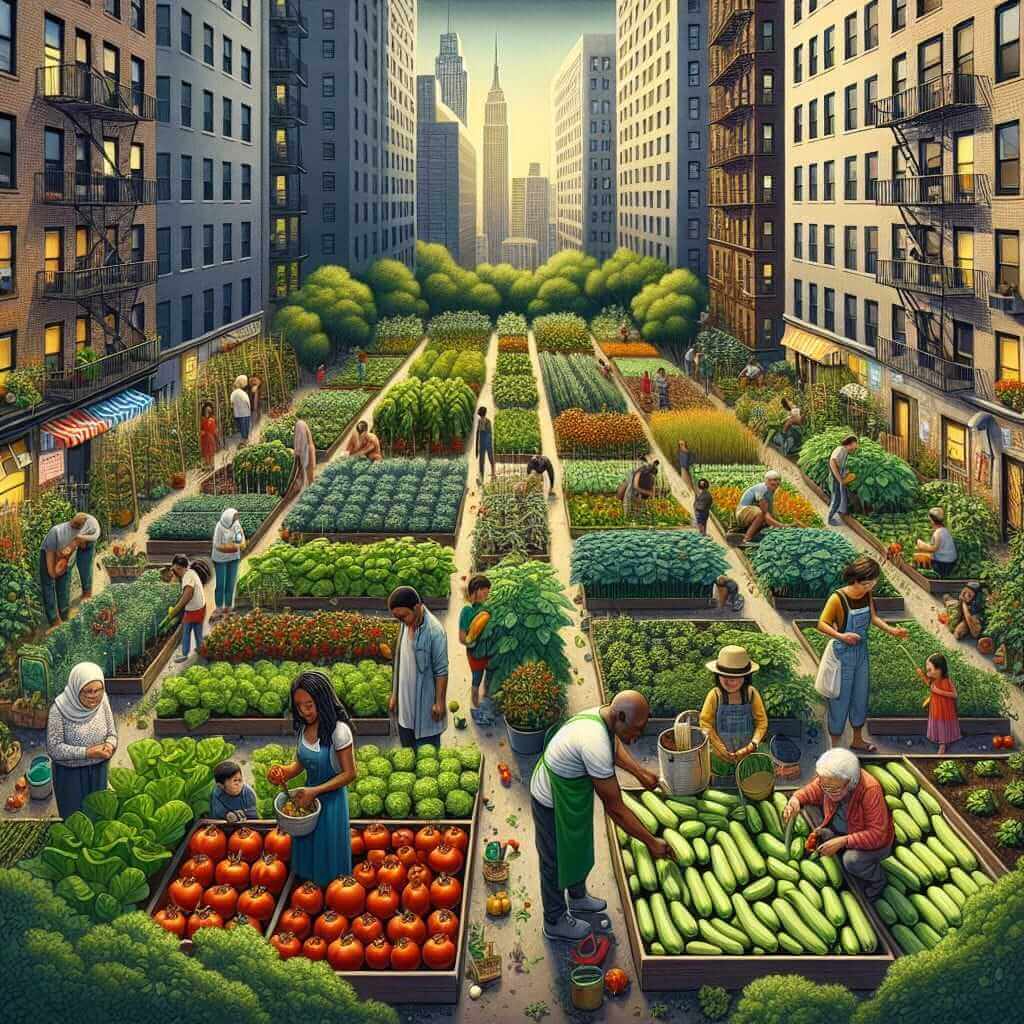The escalating global population and the mounting pressure on food systems have brought the concept of food security into sharp focus. Within this discourse, urban agriculture, the practice of cultivating, processing, and distributing food in and around cities, has emerged as a potential solution. This practice has sparked significant debate, with proponents lauding its potential benefits and skeptics questioning its true impact. This essay will delve into the multifaceted impact of urban agriculture on food security, examining both its merits and limitations.
This topic, frequently appearing in IELTS Writing Task 2, assesses your ability to analyze complex issues and present a well-structured argument. Let’s analyze some potential essay questions:
1. To what extent do you agree or disagree with the view that urban agriculture is crucial in ensuring food security for rapidly growing urban populations?
2. Discuss the advantages and disadvantages of promoting urban agriculture as a means to enhance food security in cities.
3. “Urban agriculture can play a significant role in addressing food security concerns in developing countries.” Do you agree or disagree?
Urban Agriculture and Food Security: A Sample Essay
Let’s choose the first question as the basis for our sample essay:
To what extent do you agree or disagree with the view that urban agriculture is crucial in ensuring food security for rapidly growing urban populations?
Essay Analysis
This question requires you to take a stance on the importance of urban agriculture for food security in the context of urbanization. You need to present a clear argument, supporting it with relevant examples and logical reasoning.
Model Essay
The relentless surge in urban populations, particularly in developing countries, has intensified concerns about food security. Against this backdrop, urban agriculture has been touted as a potential solution to nourish burgeoning urban communities. While I acknowledge the contributions of urban farming, I believe its significance in ensuring food security for rapidly growing urban areas is often overstated.
Proponents of urban agriculture rightly point to its capacity to enhance food access, particularly for low-income urban dwellers. By growing food locally, urban farms can shorten supply chains, reduce reliance on long-distance transportation, and potentially offer fresher, more affordable produce to consumers. Moreover, urban gardens and farms can empower communities by providing access to fresh, nutritious food, thereby improving dietary diversity and potentially alleviating malnutrition in urban slums.

However, it is crucial to recognize the limitations of urban agriculture in the context of large-scale food security. Critics argue that the limited space available in densely populated urban areas restricts the scale of food production, making it highly unlikely to meet the needs of entire cities. Furthermore, urban farming often faces challenges such as soil contamination, lack of access to water resources, and limited access to agricultural inputs like seeds and fertilizers. These factors can hinder productivity and raise concerns about the safety and quality of food produced.
While urban agriculture can contribute to a more localized and sustainable food system, relying solely on it to ensure food security for rapidly growing urban populations is unrealistic. A more comprehensive approach is required, encompassing investments in rural agriculture, strengthening food distribution networks, and implementing policies that ensure equitable access to food for all.
Word Count: 275 words
Writing Tips
- Vocabulary: Utilize topic-specific vocabulary such as “urban sprawl,” “food deserts,” “sustainable agriculture,” “hydroponics,” and “community gardens.”
- Grammar: Employ a range of grammatical structures, including complex sentences, conditionals, and passive voice appropriately.
- Structure: Organize your essay logically with a clear introduction, body paragraphs presenting both sides of the argument, and a concise conclusion.
- Examples: Provide specific examples to support your claims, such as successful urban farming initiatives or challenges faced in specific urban contexts.
Vocabulary Builder
- Food Security (noun): /ˈfuːd sɪˈkjʊərəti/ – the state of having reliable access to a sufficient quantity of affordable, nutritious food.
- Urban Sprawl (noun): /ˈɜːrbən sprɔːl/ – the uncontrolled expansion of urban areas into surrounding rural areas.
- Food Desert (noun): /ˈfuːd ˈdɛzət/ – an urban area where it is difficult to buy affordable or good-quality fresh food.
- Sustainable Agriculture (noun): /səˈsteɪnəbl ˈæɡrɪkʌltʃər/ – farming practices that aim to meet society’s food and textile needs without compromising the ability of future generations to meet their own needs.
- Hydroponics (noun): /ˌhaɪdrəˈpɒnɪks/ – the process of growing plants in sand, gravel, or liquid, with added nutrients but without soil.
Conclusion
Urban agriculture presents a compelling solution to some of the food security challenges facing our rapidly urbanizing world. While it may not be a panacea, it offers a range of benefits, from enhanced food access to community empowerment. Nevertheless, it is crucial to approach urban agriculture as part of a multifaceted strategy that addresses the complexities of food security in its entirety.
To further your understanding and practice for the IELTS Writing Task 2, consider exploring related issues such as the environmental impact of urban farming, the role of technology in urban agriculture, and the economic viability of urban food production.